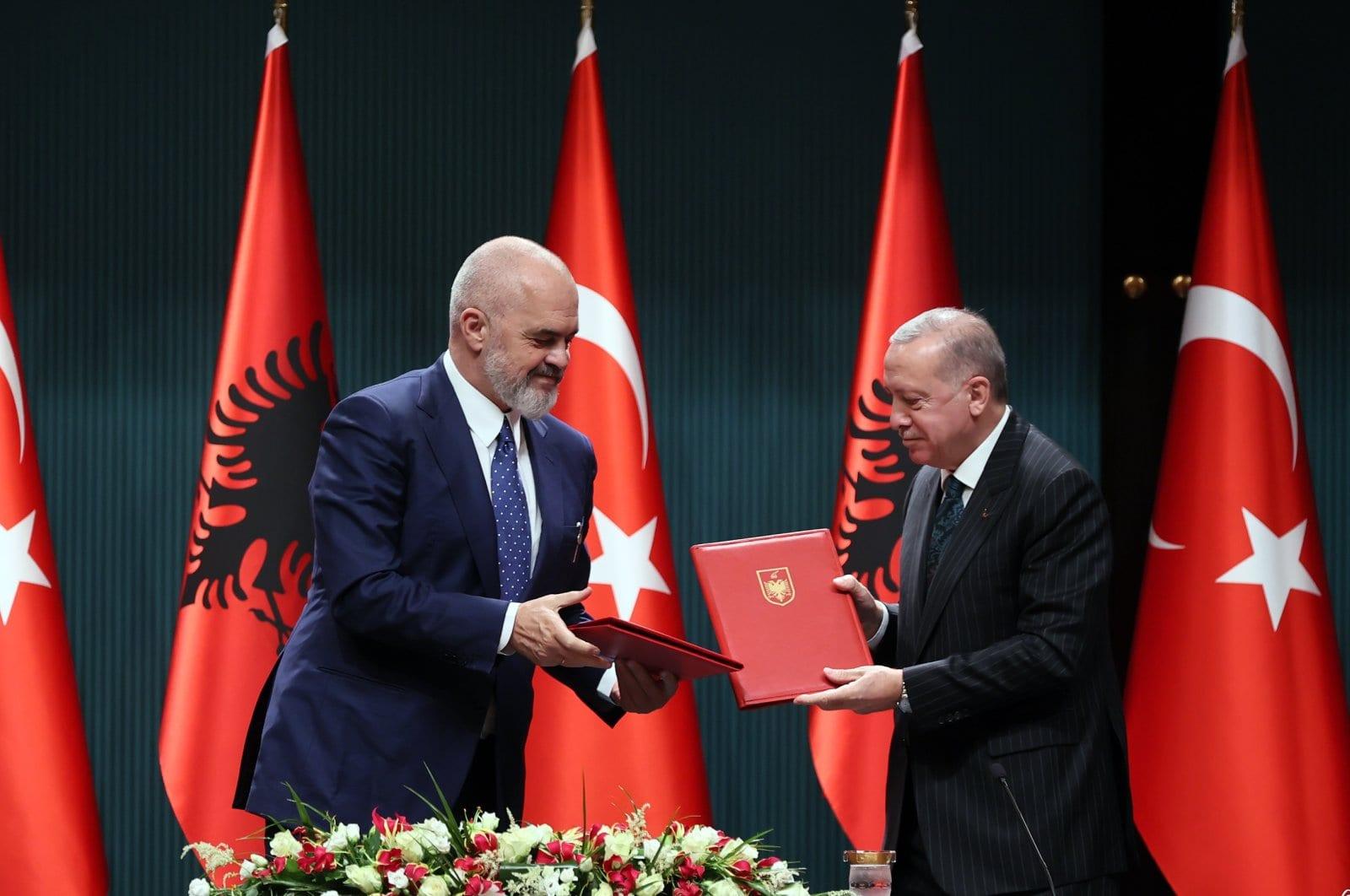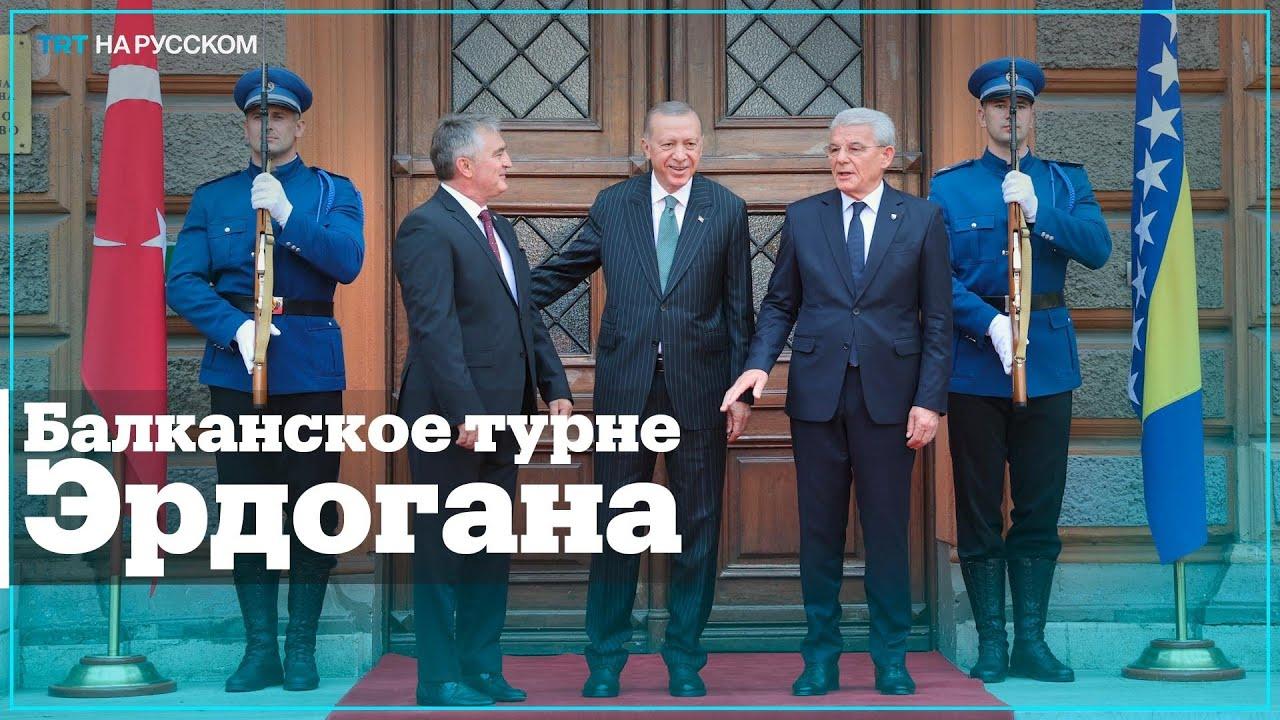Smart diplomacy: Türkiye's triumphal return to the Balkans after long hiatus Regaining lost ground
Approximately three months ago, the author of this text embarked on a long journey from Istanbul to Sarajevo. One of the most notable impressions of this journey was the contrast that followed the crossing of the Turkish-Bulgarian border. The luxurious Turkish motorways with numerous interchanges were replaced by winding roads, the new cities with red-tiled roofs by panel blocks of flats, apparently built in the time of Todor Zhivkov, and the skyscrapers and shopping centres by abandoned businesses. Only rare blue flags with gold stars reminded us that we had, in the words of the head of European diplomacy Josep Borrell, left the "jungle" and found ourselves in a "blossoming European garden".
The countries of the Balkan Peninsula were among the losers in the post-socialist era. Some of them, especially the republics of the former Yugoslavia, became the scene of bloody Balkan wars. Others turned into semi-colonies of the more developed states of the European Union: markets for industrial goods and suppliers of cheap labour. Even the inhabitants of such relatively stable and wealthy Balkan countries as Slovenia or Croatia prefer to work abroad and rent their homes to tourists. But in recent years, a new force has emerged in the Balkans that has dominated the region for centuries and is now seeking to regain its lost ground. This is, of course, Türkiye.
The Ottomans occupied what are now Bulgaria, Macedonia, Albania and Bosnia from the 15 to the 16 century, long before Scotland became British and Corsica French. Ottoman rule lasted for approximately four hundred years and left behind a significant material and cultural legacy. Even today, many towns and villages in Macedonia, Bulgaria, and Bosnia exhibit more Turkish influence than some modern settlements in Anatolia. In the 19-20 centuries, the Balkan countries gained independence after violent conflicts. Türkiye's return to the region it had ruled for four centuries after the collapse of the Ottoman Empire was only a century later.

Following the 1999 war in Kosovo, Turkish troops entered Pristina as part of a NATO contingent immediately after the fighting ended, which some consider to be a significant stage of the "Turkish Reconquista". Since the Balkan Wars and the annexation of Bosnia by Austria-Hungary, no Turkish soldier had set foot on this land. In 2008, President Erdogan recognised Kosovo's independence the day after it was proclaimed. During a visit in 2013, the Turkish leader stated that the people of Türkiye and Kosovo share a common history, culture, and civilization, and are united by brotherly ties. It is worth noting that this statement represents a subjective evaluation rather than an objective fact. Ankara presently provides Pristina with contemporary weaponry, including Bayraktar TB2 drones. Furthermore, Türkiye has a substantial diaspora of Kosovo Albanians.
President Recep Erdoğan has close ties with the Albanian government. Prime Minister Edi Rama stated that President Erdogan has been a valuable partner to Albania and Albanians during challenging times. Türkiye was among the first to recognise Kosovo's independence, and during the earthquake tragedy in Albania, Türkiye provided significant assistance to hundreds of affected families by building new houses and providing vaccines against the deadly virus. This was done while other countries were too busy with their own problems.
Ankara has established relations with both the Albanians and the Serbs. During President Erdogan's visit to Belgrade in 2017, he was greeted by enthusiastic crowds. Serbian Foreign Minister Ivica Dacic sang a Turkish folk song for the Turkish guest. On July 6, 2019, the Turkish leader told Serbian President Aleksandar Vucic that relations between the two countries had reached a historic high.

Türkiye has played an important role in the Balkans by acting as an independent mediator on behalf of Belgrade in the negotiations with Pristina and Tirana. In addition, Türkiye recognises the importance of Serbia in maintaining stability in the region. Despite being a NATO member, Ankara's unique stance on many global political issues is well-known in the region. "Türkiye no longer positions itself as part of foreign projects" and "does not consider itself a periphery and junior partner of the US and NATO", according to the statement made by the Turkish president.
In Bosnia and Herzegovina, the Muslim population expresses a preference for close cooperation with Ankara. The authorities of Republika Srpska have also shown willingness to cooperate with Türkiye, despite their hostility towards the West. Meanwhile, the Croatian community continues to rely on EU assistance. During his visit to Montenegro and neighbouring Türkiye in 2021, Erdogan expressed a desire for closer relations between the two countries. He acknowledged Ankara's responsibility for these Balkan states and highlighted the economic significance of the region for Türkiye's success.
The economic factor also plays an important role in Türkiye's success. The Balkans serve as a vital land corridor for Turkish goods to reach Europe. While the European Union remains an important investor, it is important to recognise the crucial role that Ankara's foreign direct investment plays in the region's economic development.
Türkiye is engaged in cultural outreach, as well as diplomacy and economic cooperation. Turkish cultural centres and language courses are present in nearly all states of the region, with the Yunus Emre Foundation and the Maarif Foundation playing a significant role. In Kosovo, Turkish language courses are more prevalent than English language centres.
The state institute Diyanet Işleri Başkanlığı (Diyanet) is involved in promoting Islam in the Balkans. The organisation is involved in the publication of Islamic literature in local languages, financing the construction of mosques, and assisting in the establishment of religious organisations in Macedonia, Albania, and Bosnia and Herzegovina.

Additionally, the Turkish Cooperation and Coordination Agency (TIKA) provides significant funding for the restoration of Ottoman cultural heritage sites, with up to twenty per cent of its budget being allocated to the Western Balkans. The agency is currently involved in the restoration of over eighty buildings, including madrasas, mosques, bridges, Turkish baths, and clock towers. These include significant monuments such as the Etem Bey Mosque in Tirana and the Sinan Mosque in Prizren, as well as sites in Belgrade Fortress.
In 2021, the TRT Balkans project was launched at the initiative of the Turkish Radio and Television Corporation. Its branches are located in all Balkan countries, and the channel broadcasts in all languages of the region. In 2023, a training course on "Journalism and New Media" was organised in Ankara by TIKA and TRT, which was attended by journalists from all Balkan countries. The Turkish authorities have expressed their intention to organise similar events in the future. Additionally, Turkish film and television production has been recognised as a tool of Türkiye's "soft power". Observers from other countries have noted that Turkish TV series are widely watched in the Balkans, creating a positive image of Türkiye and its approach to the common history of the region.
Turkish President Recep Tayyip Erdogan has effectively used his country's economic and political advantages to restore Türkiye's position in the Balkans, which had seemed lost for good. This is because Russia, Germany, Austria, and the United States, who are the primary competitors and opponents of Turkish influence in the region, have redirected their focus towards other countries in Europe and the Middle East. The impact of Turkish influence in the Balkans may have a long-term impact on world politics, but the extent of Türkiye's success in the Balkans remains to be seen and is likely to be determined over time.








